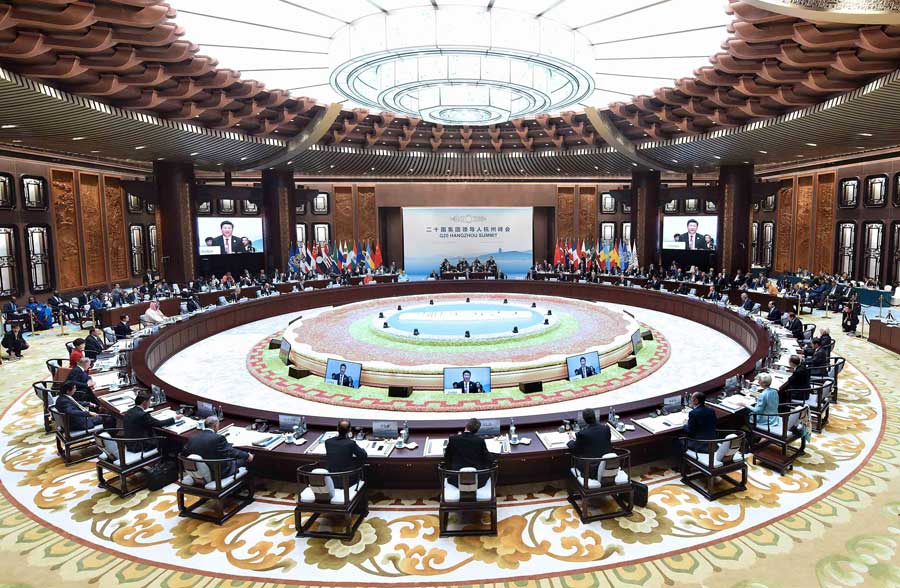Profile: Xi Jinping and his era

 |
Xi Jinping presides over the opening ceremony of the Group of 20 (G20) summit in Hangzhou, East China's Zhejiang province, Sept 4, 2016.[Photo/Xinhua] |
In September, Xi presided over a study session for members of the CPC Central Committee Political Bureau which reviewed the development of socialism over the past 500 years. He studied China's failures in copying the political systems of other countries and the successes that came after choosing socialism, especially the experience of nearly 40 years of reform and opening up. He analyzed the development models of other countries.
"Only the wearer knows if the shoes fit or not," Xi said.
The Party must "neither retrace our steps to the rigidity and isolation of the past, nor take the wrong turn by changing our nature and abandoning our system."
In his report to the congress, Xi said: "The path, the theory, the system, and the culture of socialism with Chinese characteristics have kept developing, blazing a new trail for other developing countries and nations to achieve modernization. It offers a new option for other countries and nations who want to speed up their development while preserving their independence; and it offers Chinese wisdom and a Chinese approach to solving the problems facing mankind."
Development of socialism in China, both in practice and theory, has shown that the country is able to avoid the historical cycle of rise and fall. Likewise, it could evade the "Tacitus Trap," which warns that when a government loses credibility, whether it tells the truth or a lie, it is inevitably thought to be lying.
China offers an alternative answer to such predictions as the "end of history," raised by Francis Fukuyama who argued for the inevitable triumph of Western liberal democracy, and has brought new meaning to the comprehensive development of human society.
Xi has led socialism with Chinese characteristics to a new era, a new era for entire humanity, as we stand together at the crossroads of new development paths.



















